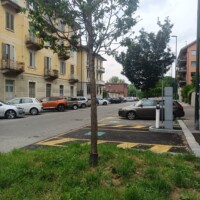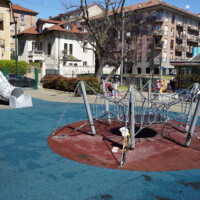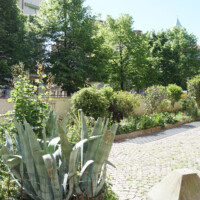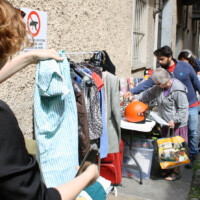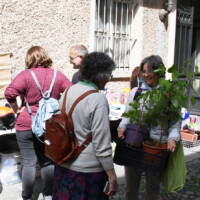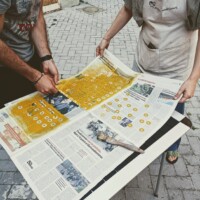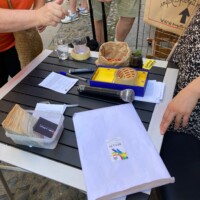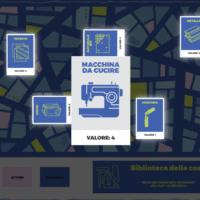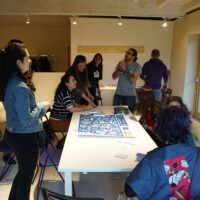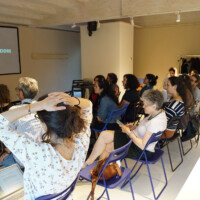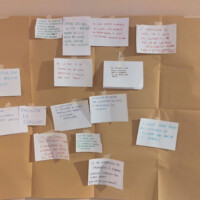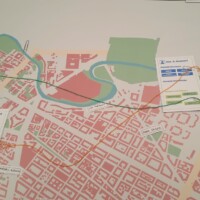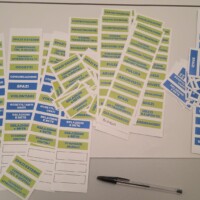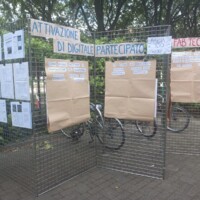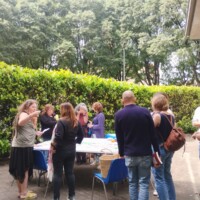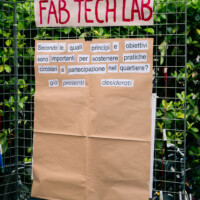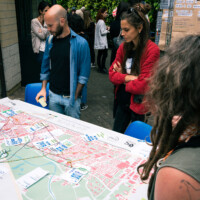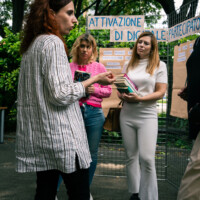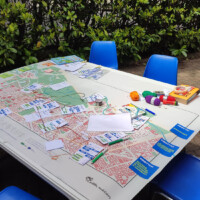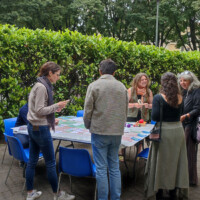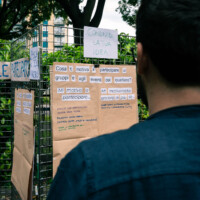Introduction
Among the many social innovation processes in Turin for revitalising social economies in private and public spaces, some university-led initiatives show complementarities with the Egaleo case, that are relevant for studying the different components (physical, digital, social) of CUE. The Library of Things in District 4 (in the middle between center and periphery, dynamic in terms of recent multicultural migration fluxes and civil society initiatives – especially with micro circular economies in the neighborhood “Borgo Campidoglio”) is a circuit for exchanging, lending and reusing objects that triggers circular economy and social cohesion practices in the neighborhood, developed by cultural association Les Petites Madeleines – LPM. The association – whose work focuses on the development and promotion of circular and sustainable projects through an inclusive and solidarity-based approach – has successfully built a community that is strongly motivated to implement CUEs.They already have started with the experimentation of blockchain-based digital tools, while their experience with upcycling of urban materials and spaces is still initial.
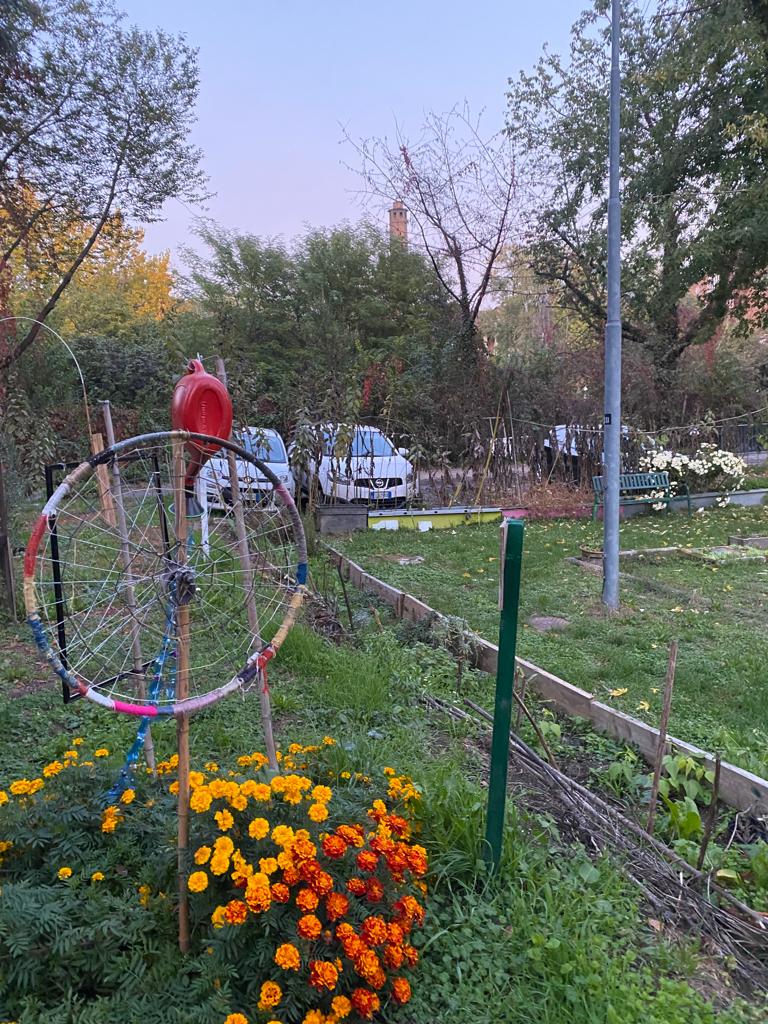
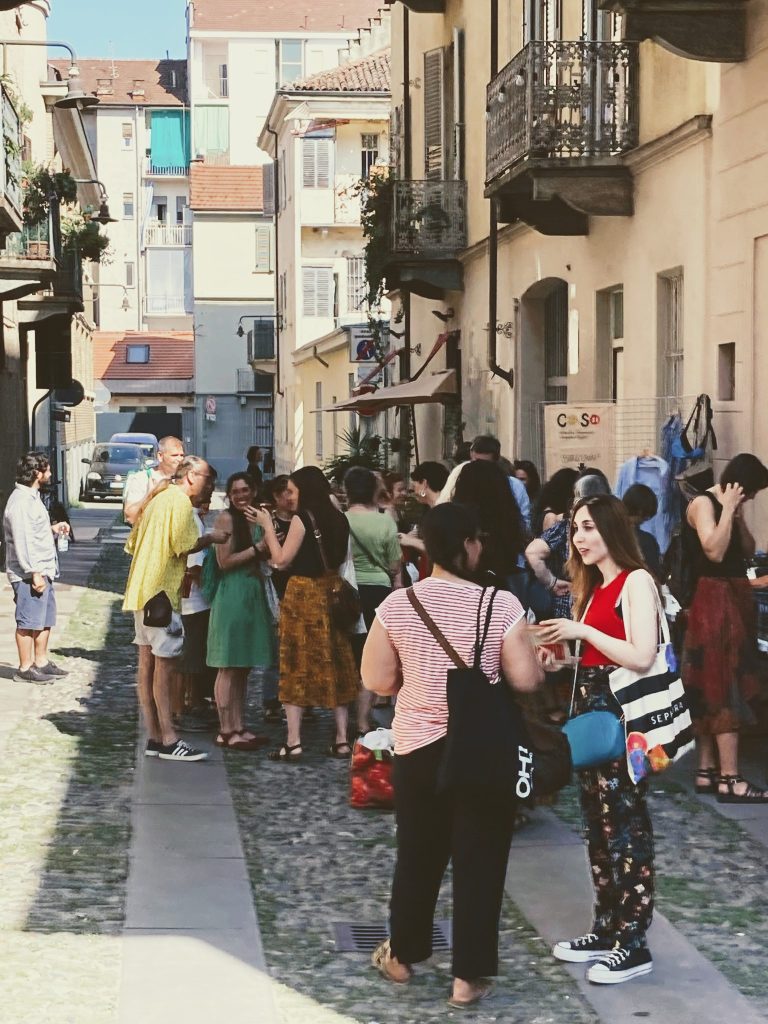
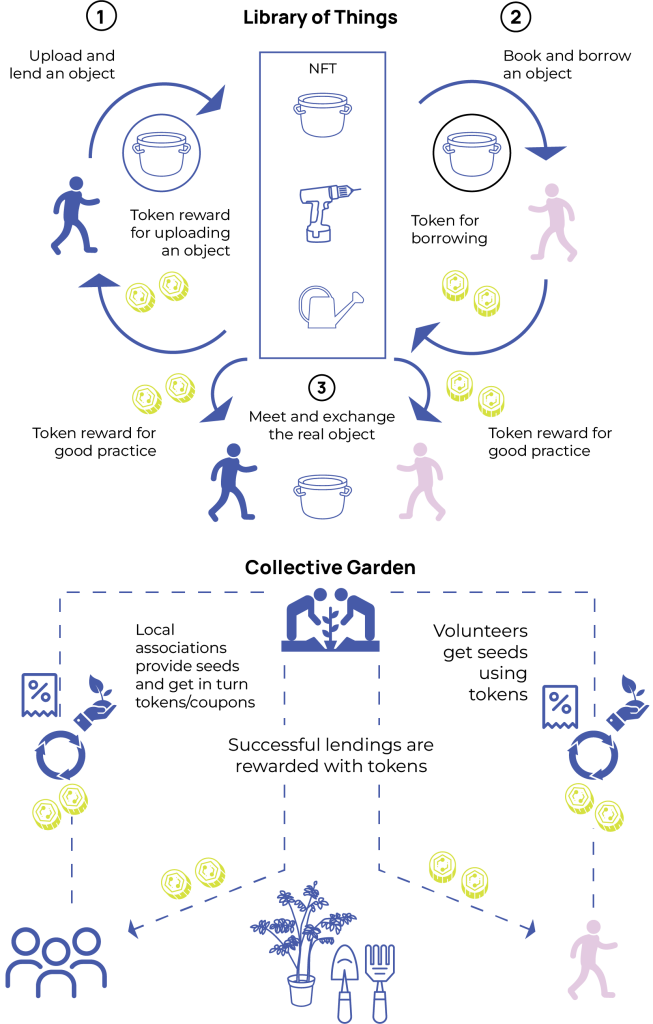
community engagement
Episode 1: Building together a shared vision
The co-design process primarily involved two target groups: the collaboration pacts and the COSO community.
Collaboration Pacts
The first step of the community engagement process involved a series of interviews conducted between December and January with representatives of the active Collaboration Pacts in District 4.
Focus on Collaboration Pacts: Collaboration Pacts (or civic agreements) are formal tools through which private citizens, organizations and the public administration come together to manage, maintain, regenerate and bring to life urban commons such as squares, courtyards, schools, gardens and abandoned spaces. Their purpose is to promote co-design and shared governance of urban assets, based on mutual trust and concrete commitments

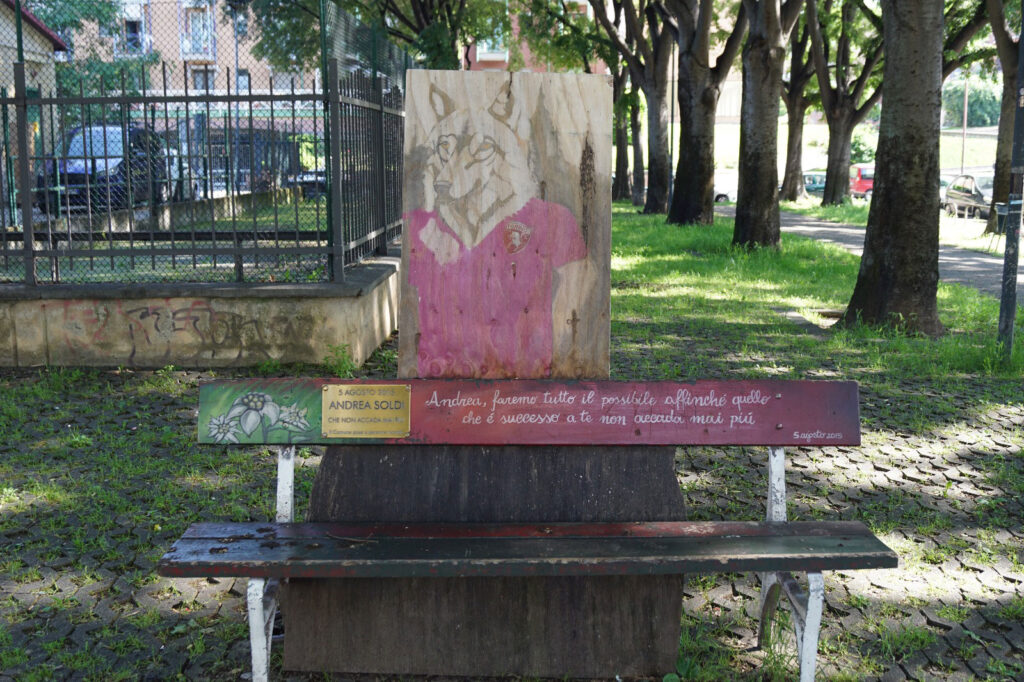
Piazza Paravia & Piazza Umbria in Turin
The interviews supported both the research team and the District 4 Municipality in assessing the state of each Pact, identifying the existing needs and available resources and, most importantly, understanding each actor’s current or desired involvement in circular practices and systems. This process helped promote and incentivize their future participation in the implementation of a CUE.
Spots of collaboration pacts: Faa di Bruno Garden, Piazza Paravia, Fagnano Garden & Salbertrand Flowerbed
The COSO Community
The second target group involved in the community engagement process was the COSO Community. COSO (Comunità Organizzata Scambio Oggetti – Organized Community for Sharing Objects) is a “Library of Things” initiative active in District 4, implemented by the cultural association LPM. This community, already familiar with and receptive to both the physical and digital methods foundational to the creation of a CUE, consists primarily of individuals aged 40 to 70. It served as a virtuous example of social cohesion and collective motivation.
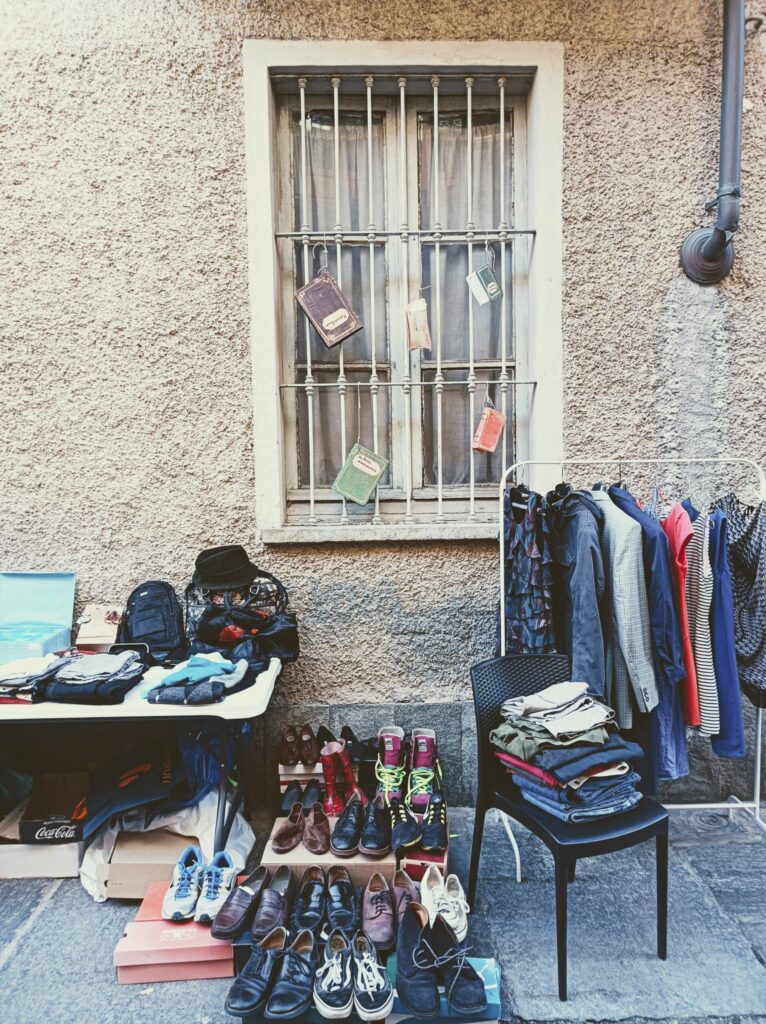
1st Community Engagement Event
It’s important to highlight that all the community engagement activities were held in public spaces – such as libraries and civic centers – and were open to the public, not limited to the identified target groups.
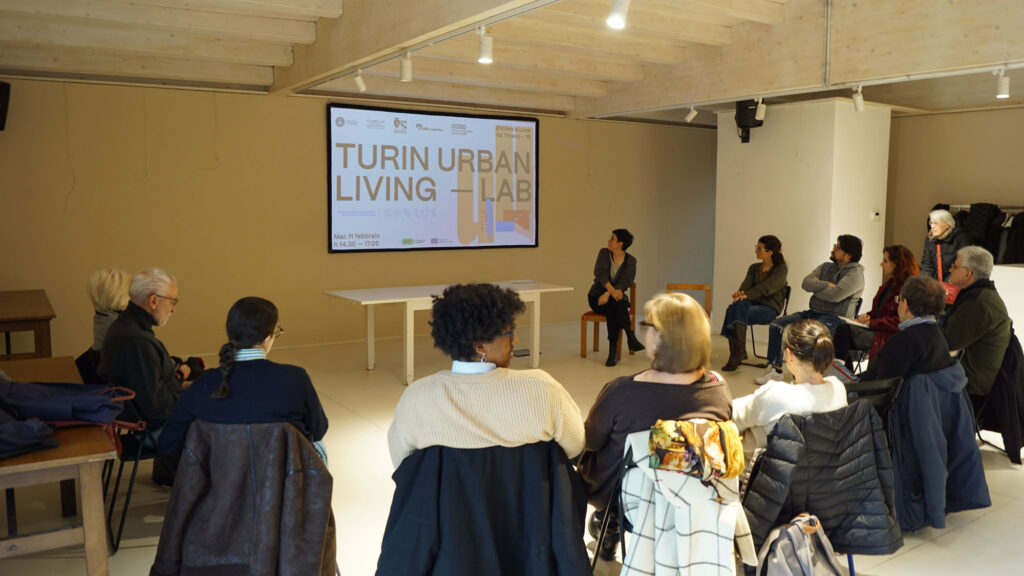
The first community engagement event took place on February 11th, at the Volere la Luna association’s headquarters, and served as a public restitution meeting. During this event, the findings from the Collaboration Pacts interviews were presented to both the public and representatives of the District 4 Municipality.

Key themes and insights that emerged include:
- Organizations and associations play a crucial role in fostering participation, ensuring continuity, and promoting the inclusion of individuals from groups at risk of vulnerability or exclusion.
- Conversely, management by private citizens often leads to the development of strong interpersonal bonds and close-knit communities.
- Usually, adults and elderly individuals are the most active in the management of the Pacts, outperforming teens and young adults.
- Overall, the relationship and communication between the Pacts could be improved, living room for the implementation of shared and circular practices.
2nd Community Engagement Event
The second engagement activity was held on March 20th, at the Library Service Point “I ragazzi e le ragazze di Utoya”, a small local library located in District 4.
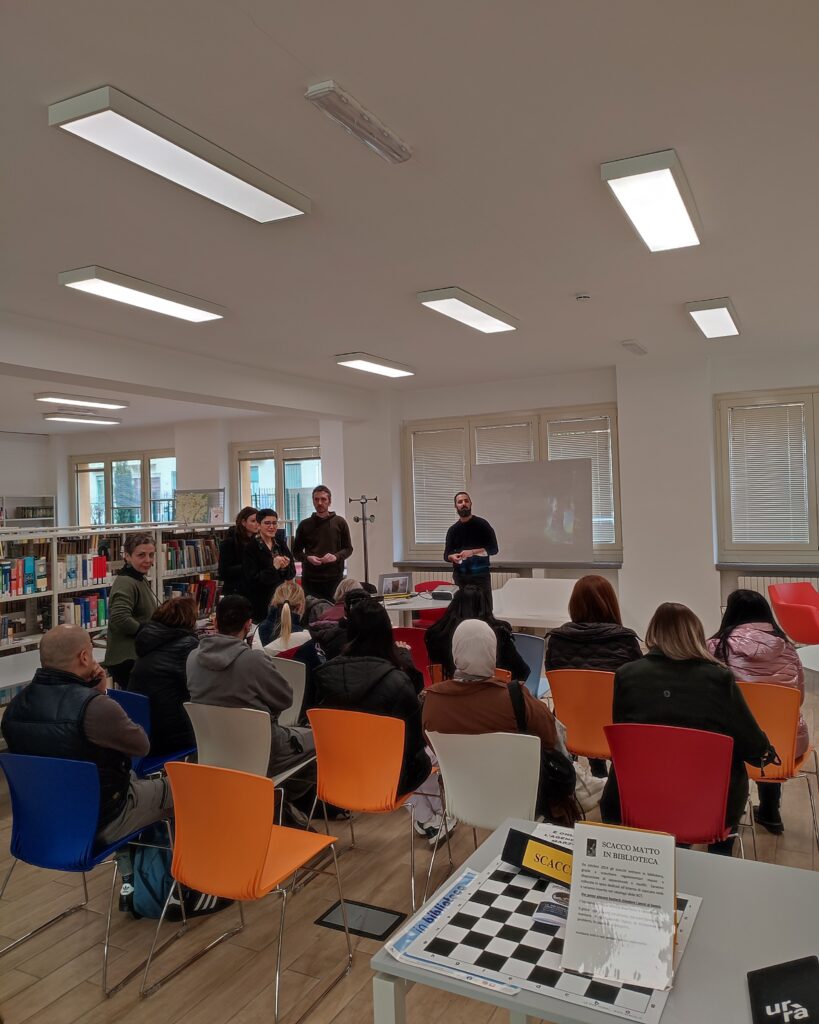
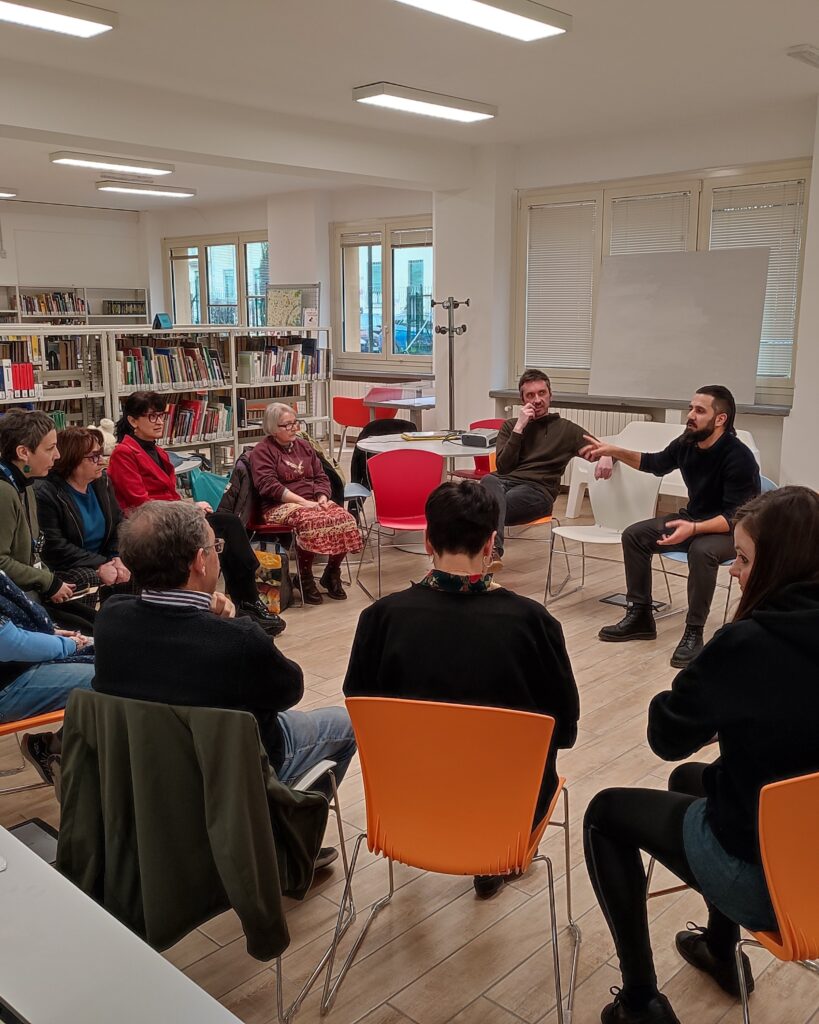
After an in-depth presentation on the COSO project outlining all stages of the project, from the drafting of the shared manifesto to the co-design of the web-app, and a practical session consisting of a small Swap Party, the participants took part in a Fab Tech Lab: conducted as an open roundtable discussion, the activity encouraged participants to share reflections and insights derived from their personal experience in applying CUE.
3rd Community Engagement Event – Corpus Game
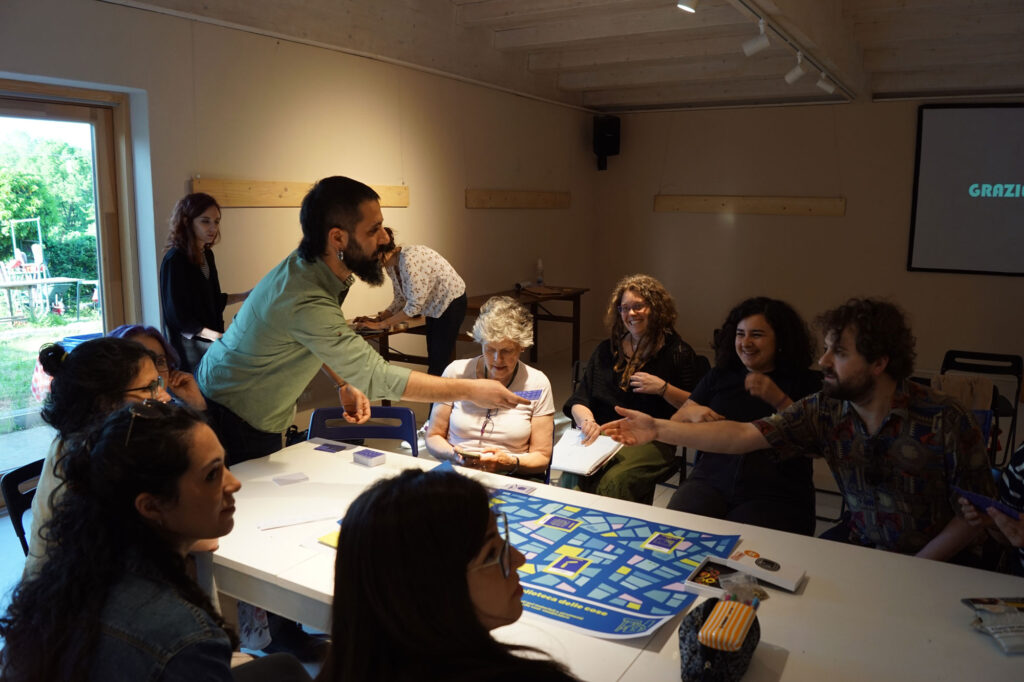
The third community engagement event was held on April 30th at the headquarters of the Volere la Luna association. Participants engaged in a board game developed by OLA, designed to promote upcycling, circularity, collaboration, and participation through a value-exchange system. The objective of the game was to build and develop infrastructure within the open urban spaces of an imaginary neighborhood represented on the game board, by exchanging the necessary materials and tools with other players or borrowing them from the Community Lab through token exchange.
Facilitated by members of LPM, the gameplay allowed participants to experience firsthand the dynamics of collaboration that are essential to creating a cohesive, purpose-driven community. The game also challenged the players to find a way out of the capitalistic mindset by reframing the function of tokens: not as a store of value, but as a tool to foster cooperation and collective and individual progress.
Introduction in the scope of the game, graphics of the Italian version designed by UNITO team & feedback collected.
design phase
Episode 2: Co-designing with the community
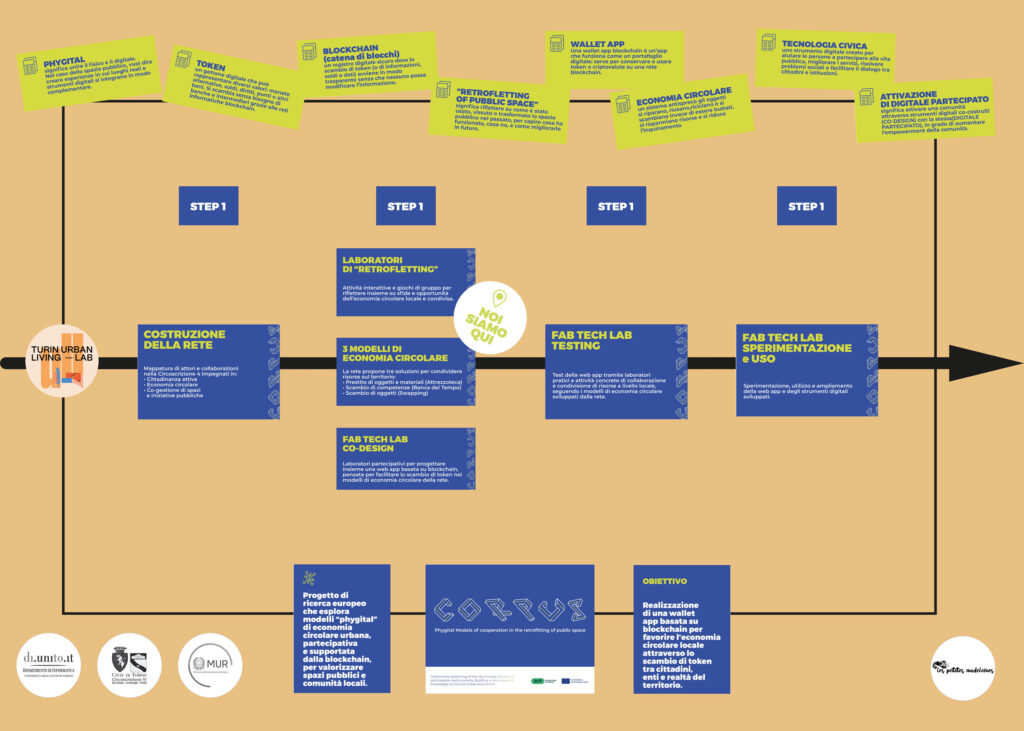
Roadmap of the co-design process
In May, the Corpus team organized three workshops focused on the co-design of models and tools for sharing resources, spaces, and time. All activities took place in District 4 and involved the previously identified target groups.
Co-design workshop A
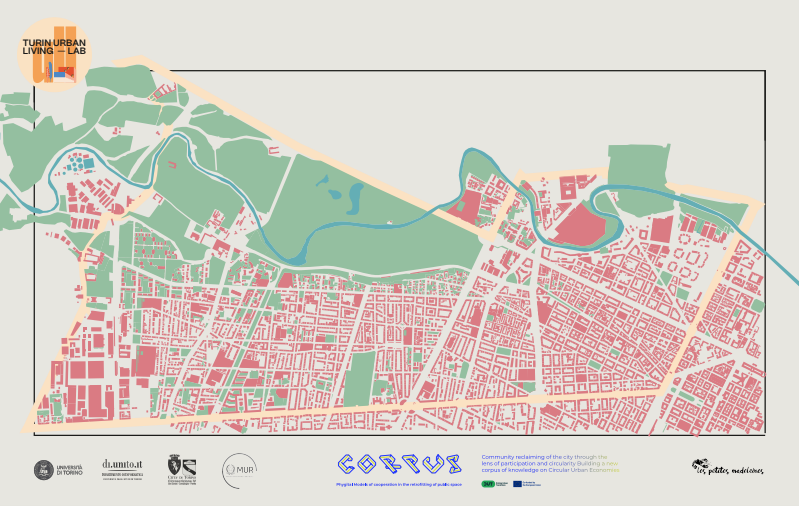
District 4 map

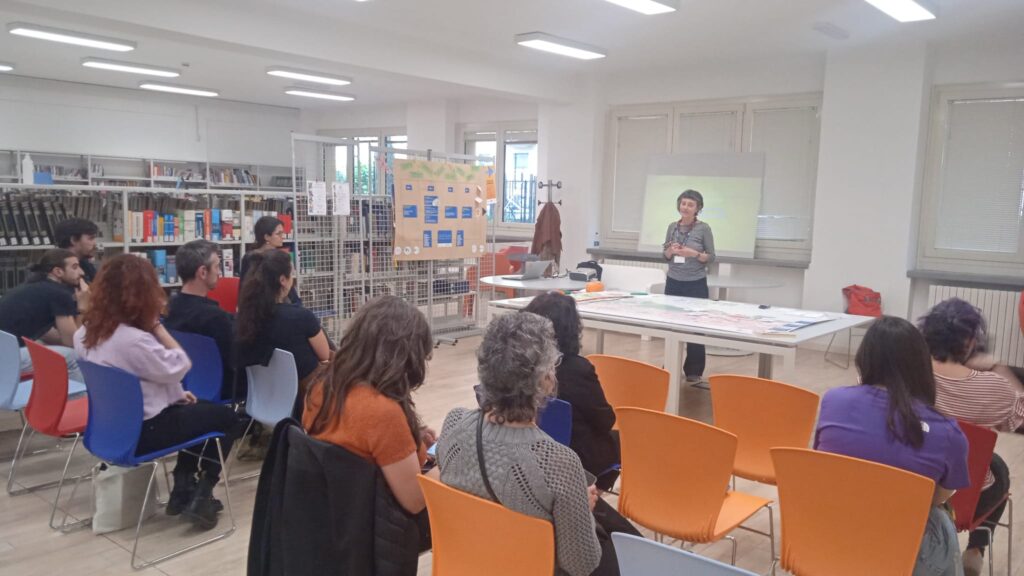
The first workshop was held on May 22nd, at the Library Service Point “I ragazzi e ragazze di Utoya” and involved an activity aimed at helping local stakeholders define practices and tools for mutual exchange and sharing. Using a large map of the District as a base, participants traced connections between community needs and resources put into circulation by citizens, public authorities, and local associations. These connections were visually represented with three colored threads, each symbolizing a different form of sharing: lending, gifting, and exchange.
Co-design workshop B
The second workshop took place on May 24th at the “Sa Lolla” Civic Centre, as part of a day dedicated to circular practices. Building on the ideas and reflections developed during the May 22nd session, the Fab Tech Lab engaged citizens and residents of District 4 through its dynamic and hands-on methods. The insights gathered from participants proved to be particularly valuable to the research team, offering an accurate and nuanced picture of relationships and connections shaping the neighborhood.
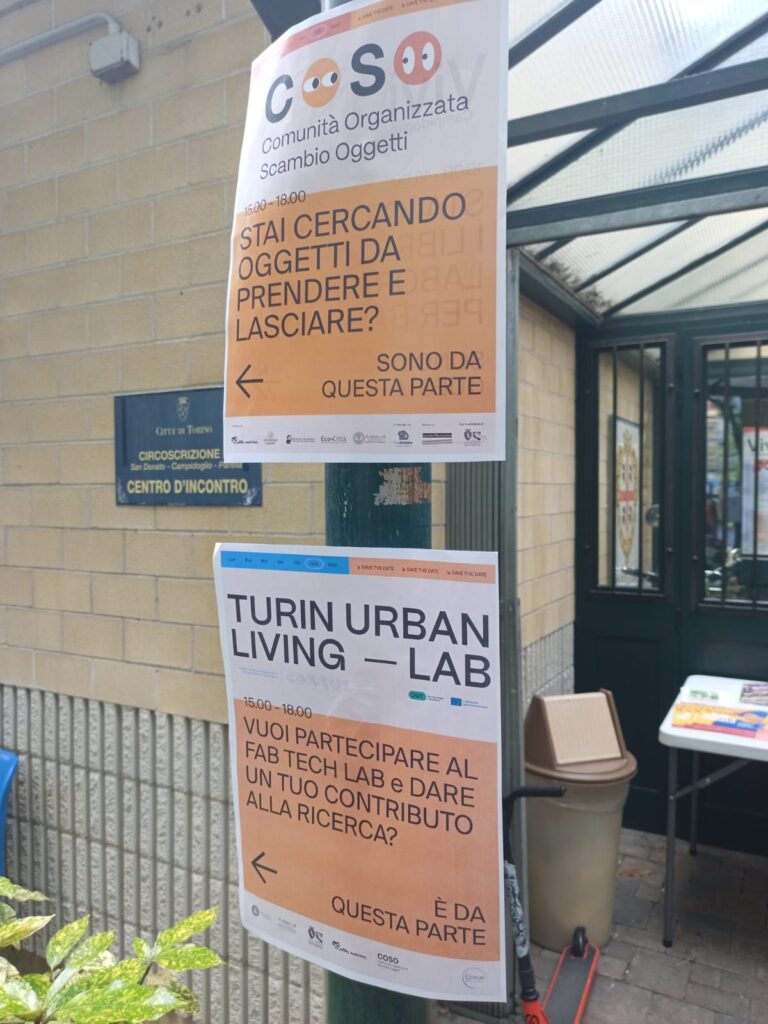
Co-design workshop C
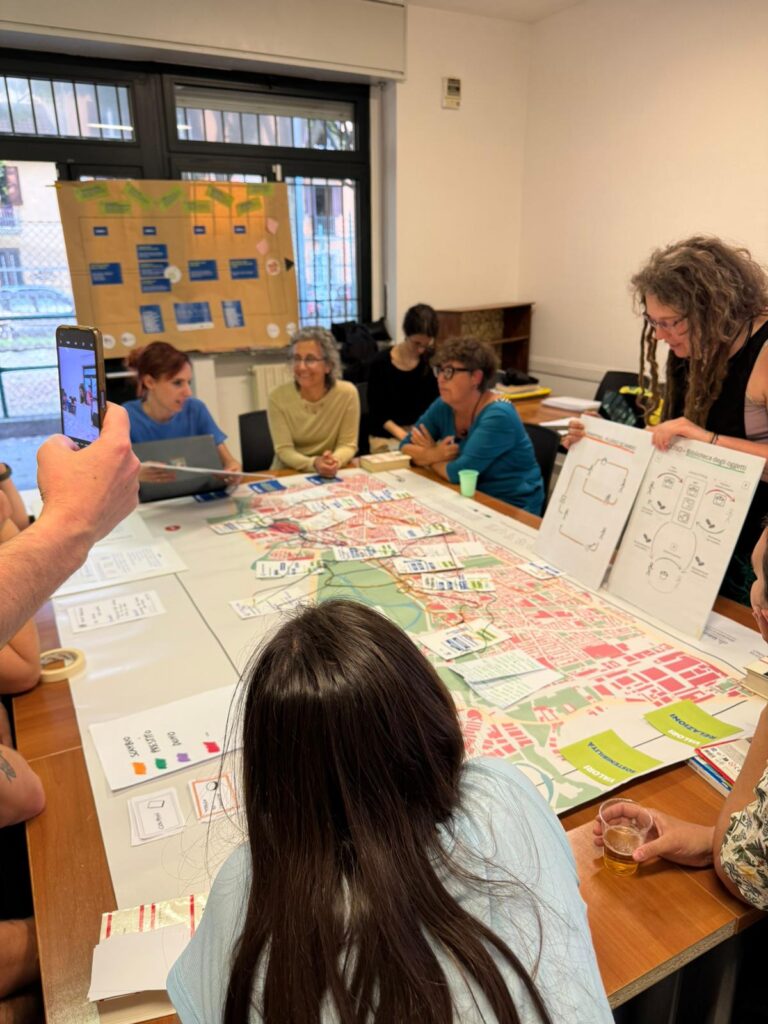
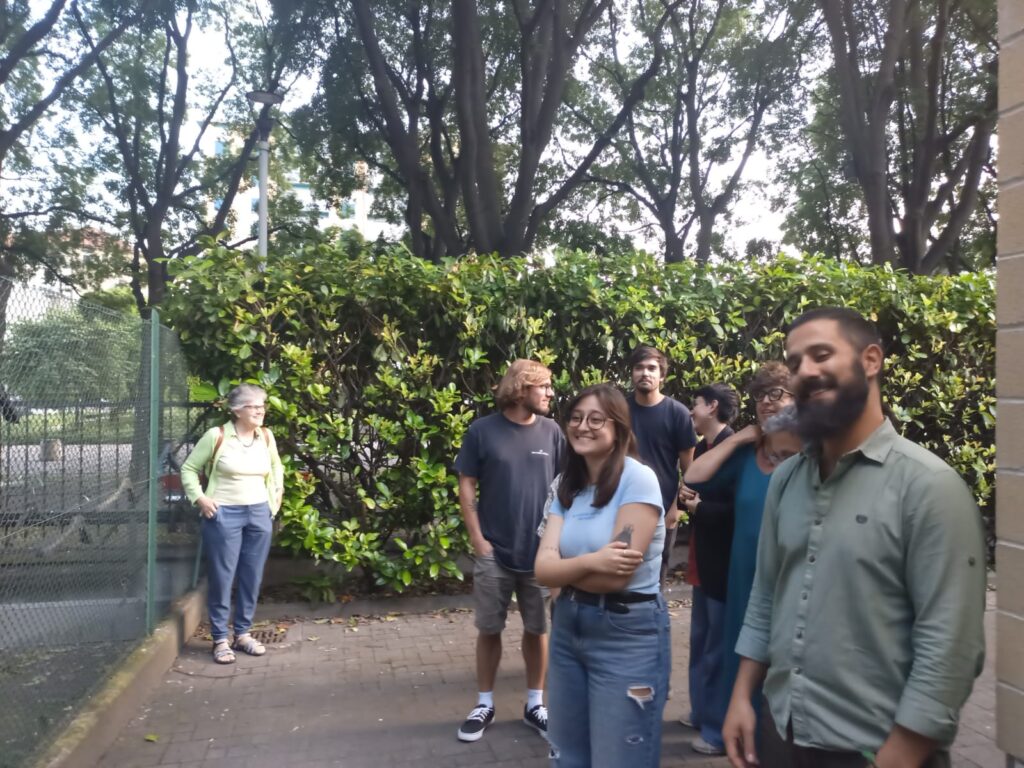
The third workshop was held on May 26th, once again at the “Sa Lolla” Civic Center. During this last activity, we explored how to integrate tokens into the exchange and lending flows mapped out in the previous session, envisioning new scenarios for collaboration. Key points of the discussion were:
- The necessity for two types of tokens: one functioning as a social currency and one as a reward for having put in place circular practices and values
- gifting should remain outside the token system, preserving its non-transactional, anti-capitalistic value
- The exchange and lending of immaterial resources (such as the sharing of skills) has the same importance as the exchange and lending of material objects.
A special thanks goes to the associations that followed and supported this first phase of the project throughout all its steps:
- PiùSpazioQuattro
- EcoBorgo Campidoglio
- District 4’s Time Bank
- Gli Amici di Piazza Paravia
- San Donato Coop
- Stranaidea
And to Les Petites Madeleines, for their active engagement and for facilitating the project’s workshops and practical sessions.



